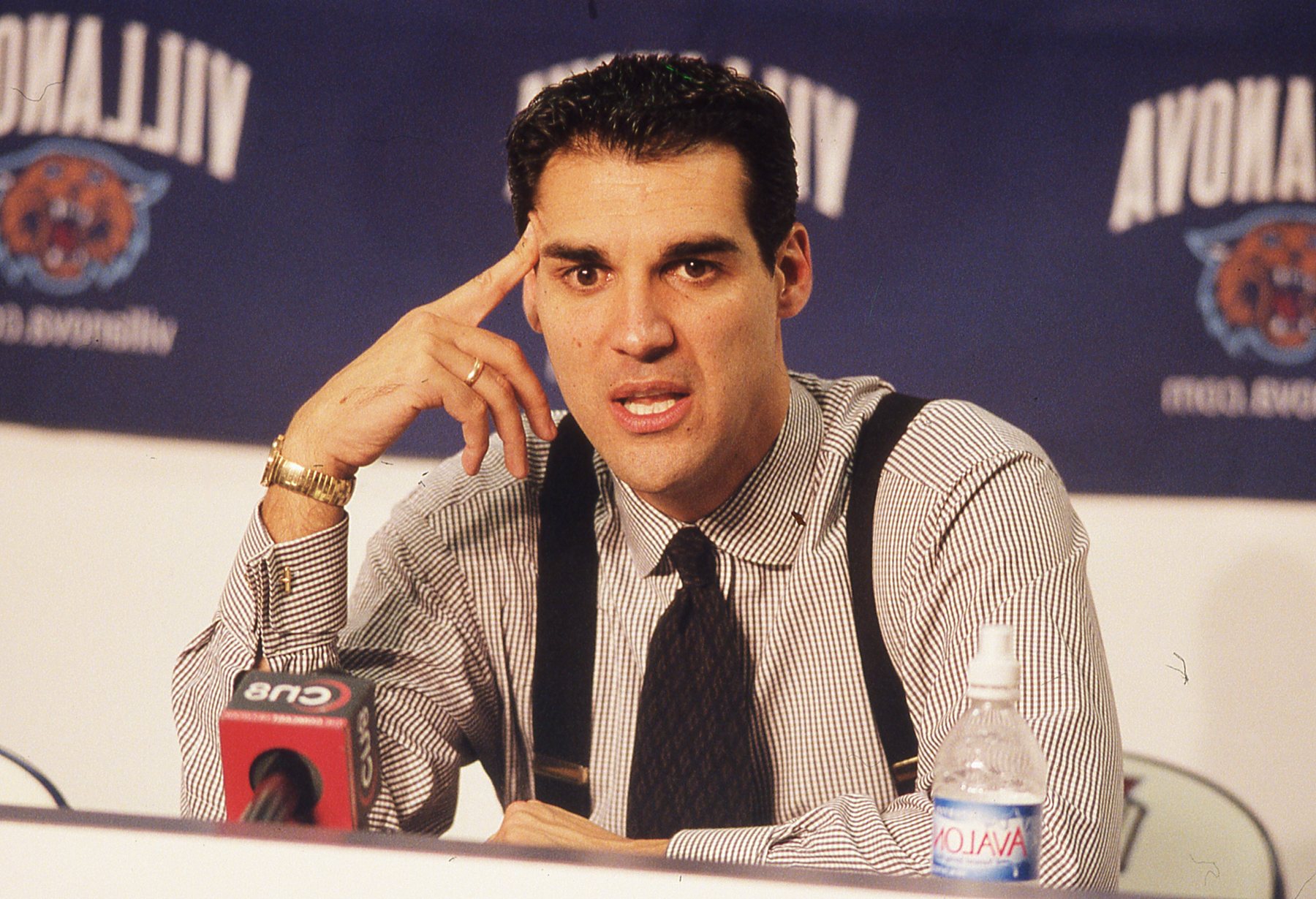"In November 2004, we were about to begin our fourth season at Villanova. We had yet to reach an NCAA Tournament. Over breakfast at the Villanova Diner, journalist Dana O’Neil told me she felt compelled to write that another miss might make Villanova consider a change. Although I was feeling none of that pressure from our Athletic Director, Vince Nicastro, I understood the narrative. We were hired to win and had yet to do so consistently. At that moment, doubt was perfectly natural. Yet what our staff was seeing each day in practice told us we were close. We elected to stay the course, and as our young team matured, we turned a corner, eventually posting a 24-8 record that allowed us to advance to the 2005 NCAA Tournament Sweet 16."
Resilience Resume Project
The Resilience Resume Project is a collaborative effort of the Career Center and Office of Health Promotion designed to help Villanova students see that success does not happen overnight and the journey to it is often full of difficult moments - even for the most successful among us. To illustrate this, members of the Nova Nation have shared stories including things like jobs they didn't get, awards they didn't win, times when they failed a big test or ideas they had for a career that didn't work out. This is what we're calling an example of a "Resilience Resume," sharing defining moments in a career through a different lens.
We hope you will be inspired by their ability to embrace the challenges, summon their courage and resilience and willingness to vulnerably share these moments with you.
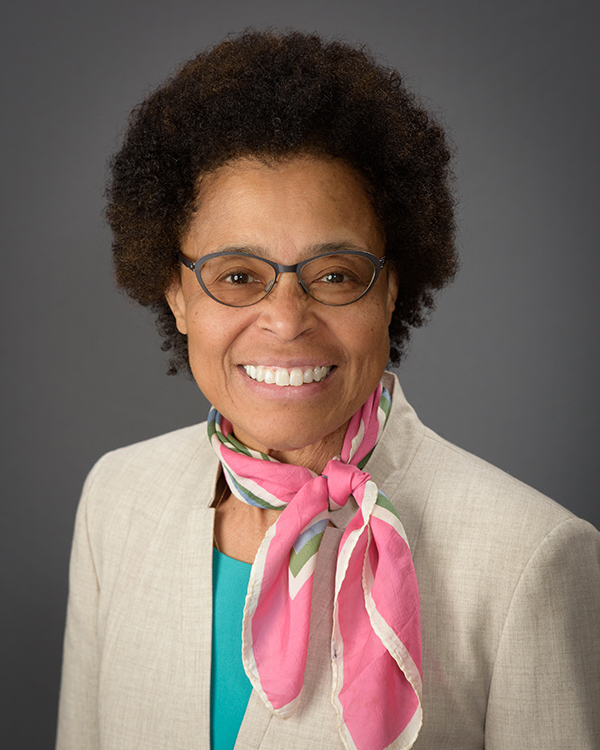
"I come from an aspiring middle-class Black family. That means that of my five sisters and brothers, three of us grew up in inner-city Cleveland and three in a more affluent suburb of Cleveland called Shaker Heights. My mom stayed at home—sort of. She was involved in all our various schools, our community and of course, the inner-city parish we never left even after we moved. Consequently, education and the civil rights movement were critically important in our household. The only way to improve the lives of our family and our race was through education. Implicit here is the obligation to do both, of course.
I did well in school and the activity that gave me identity was debate. I was in a mostly white high school and my oratorical skills and teammates shielded me from the loneliness and isolation that seemed inevitable.
With my success came the family belief that I was headed to law school. And yet, I also did a ton of service. I loved teaching and looked forward to any opportunity to volunteer.
When I went to college, while I continued to debate, I also prepared myself as a teacher (student teaching, etc.) My family, however, kept telling me that I was better than being 'just' a teacher. So, I took the LSAT, did the applications and even went on interviews. The moment of truth came in one interview when an admissions person at a law school near my home asked, 'so why do you want to be a lawyer?' I knew the answer I was supposed to say, and I even started to go through my carefully rehearsed presentation. Instead, 'the great debater' sat in silence, head down and just mumbled, 'I don’t know!' Needless to say, I was rejected from law school. More importantly, I applied to graduate school in Rhetoric and never looked back."
Dr. Nance's Resilience Resume Social Media Post
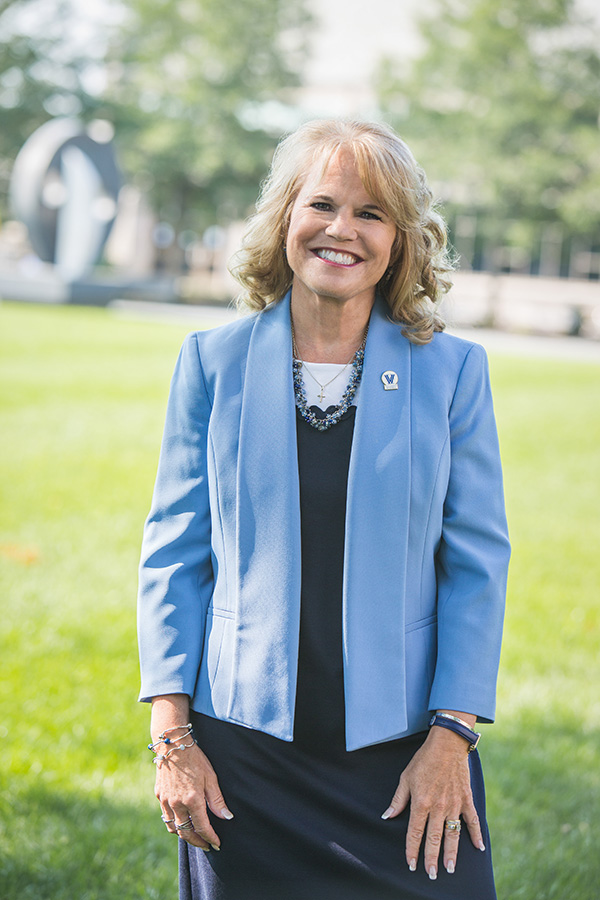
“Throughout my life, I’ve had various professional and personal obstacles and setbacks that have called for resilience on my part and the need to pick myself up and keep going. I think the toughest obstacles were when they were totally unexpected and consequently, they threw me off.
One example was in a job situation where I was up for a promotion, expecting everything to go smoothly. I put together a strong portfolio for the promotion and I assumed it would be a slam dunk. And yet it wasn’t. One person was critical of my accomplishments. This really threw me off since I had no inkling he felt this way. Not only was I caught off guard, but I was disappointed, since I thought this person was a supporter of mine based on our interactions. I could not understand his motives or rationale. The whole experience caused me stress for months (my dentist told me I was grinding my teeth!)-I just couldn’t understand it.
While I did succeed in the promotion, the experience was really stressful. No matter how much we may want everyone to like us, not everyone will. I realized I could either stay consumed with why he was against me or I could just let it go and move on, knowing that I would never fully understand it. And that is what I did. It actually helped me later in life since I realized that not everything is predictable or that we have control over everything.
To me, resilience means calling on your support group–whether that’s your family, your friends and/or your faith, to help you stay focused each day, and to remember that you just need to stay strong that one day. Sometimes we worry about the next week or month or year, and this totally overwhelms us. For me, I prayed to stay positive each day and I still follow this today, many years later. This has taught me that tough challenges will be there and yet we must push onward if we really want to make an impact in the world. We can’t let others hold us back. If we are resilient, we can handle one day at a time.”
Dean Russell's Resilience Resume Social Media Post
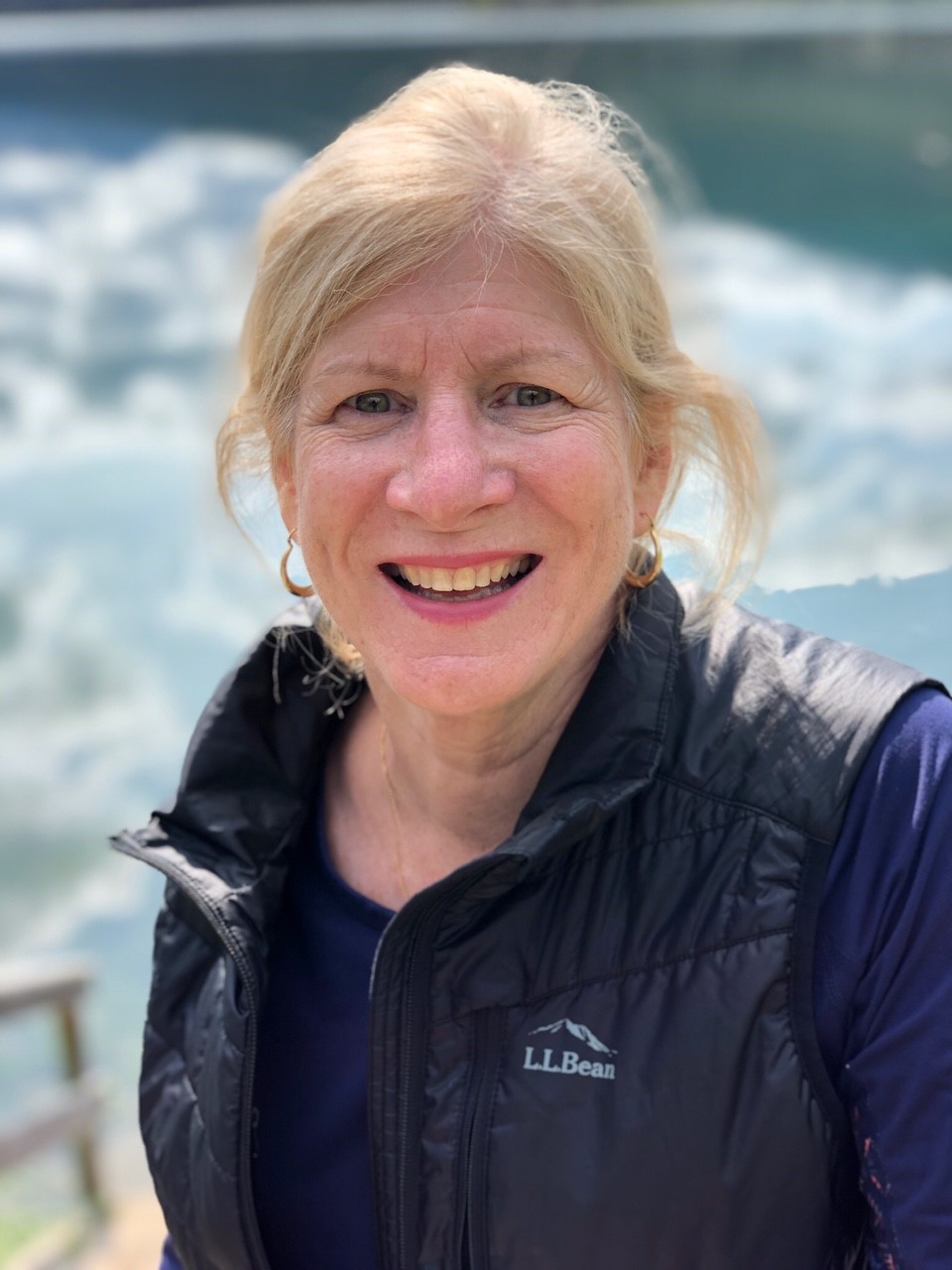
“I graduated summa cum laude from college and a year later started law school at Duke University. I was on a trajectory for worldly success, coming out of a top law school and working for a prestigious law firm in Washington D.C., and at a law firm in Philadelphia. The problem was, I was miserable. Though I loved the study of law – its nuance, its power, its logic, its analysis – I did not like enjoy the practice of law, at least in the “big law firm” setting. When I thought about my situation, I thought –I’ve committed three hard years of my life to law school, and tens of thousands of dollars of student debt, what can I do now? I was a complete fraud and failure. I dressed up every day, I took depositions and reviewed documents, I holed up in the library to research caselaw, wrote motions and briefs, yet I despaired. This was not what I wanted with my life. I sought connection, meaning, purpose; for me, I was not finding those things in what appeared to others to be a very credible, reputable legal career that also offered significant financial compensation.
Ultimately, I realized I needed to walk away; I needed to find another path to explore. Since I was in my early 20s, I’ve had a mantra: If I died tomorrow, would I like how I lived today? I realized I would be most disappointed if I did indeed die tomorrow. I needed to change that. After some searching, I found the opportunity to work at Villanova – first at the law school, then in Student Life. When I first made the change, my salary became 50% of what it had been. But I lived simply and had some savings from my lawyering days. And I took the leap to a new career, to what became a true vocation. And I have not looked back. What I’ve learned from this experience is that it is hard to know what you want to do for a career when you are 18, or when you are 22 or even 32. It’s okay to explore, to try different things. Every experience we grow from – we learn, we develop, and we take those lessons with us to the next part of the journey. I also learned that life is indeed a journey – that’s not just a cliché. We continue to discover what fulfills us, what we are good at, how and with whom we want to spend our time. I’ve learned that this discovery takes time – and that’s okay too. In fact, it probably takes a lifetime.
I can also say that I’ve learned to love aging: because every day I learn something new, I become a different version of myself, and collectively, over enough days, I am slowly becoming a better version of myself. That only comes with time, with patience, with the bumps and bumbles along the way, which have helped me. I’ve learned from them and acquired wisdom from them. And I feel grateful for both the successes and for the hard things because all of those things together make me who I am, and make me better at what I do in my work life and in my personal life … because of them. I feel blessed.”
Kathy Byrne's Resilience Resume Social Media Post
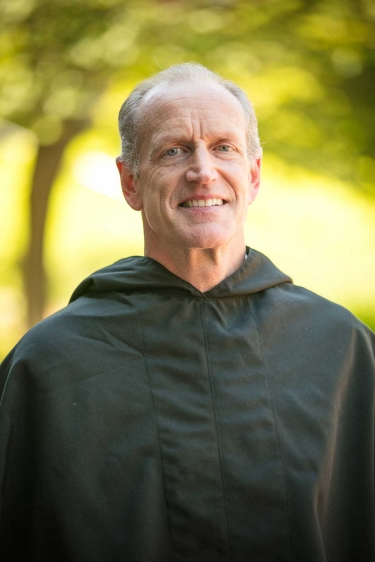
“The world is full of success stories, and we know that life is also full of struggle. It is amazing when we come to realize how connected those two experiences are to one another. Success is so often the fruit of strife and struggle. When we see people, who make it to the top of the mountain, let us not forget about the climb, the missteps, the people along the way who help us overcome the obstacles on the road.
I have had the privilege and the joy of working closely with our Villanova Men’s Basketball team. The recent success is known to all, and everyone loves to point to the pinnacle of success culminating in the National Championships in both 2016 and 2018.
One year that people rarely talk about is 2015. The year when Villanova was knocked out in the first round…when we came up short…when we did not win it all! I can recall a locker room full of broken hearts and dreams. There were unfulfilled expectations, national media reporting using words like “failure”, crying flutists and yet another Villanova team coming up short.
It was inspiring to see each member of that team taking ownership of things that “I” could have done better. No finger-pointing but rather, with the passage of some time, renewed hearts, and minds…There came a humble desire to learn, grow and strive to get a better mind, body, soul and spirit.
The same fallen broken-hearted teammates went back to work in the summer with a renewed sense of urgency, humility, wisdom, and commitment to the core values that make up the Villanova Basketball family. The hardship and disappointment became the very catalyst for growth, and a spirit of unselfishness to accomplish a common goal. The goal was NOT to win a Championship but to become the best version of self and team we could possibly be.
It was Nelson Mandela who said: “I never lose. I either win or learn.” A friend of mine offered the insight he was given after wallowing in a recent setback for too long. “When depression sets in…through God’s grace we can rearrange those letter and spell: I Pressed On!”
Let us never be afraid to fail. Let us continue to live boldly and with courage to learn and grow. Let us strive for success, not by avoiding all setbacks but by moving through them to higher ground together!"
Fr. Hagan's Resilience Resume Social Media Post
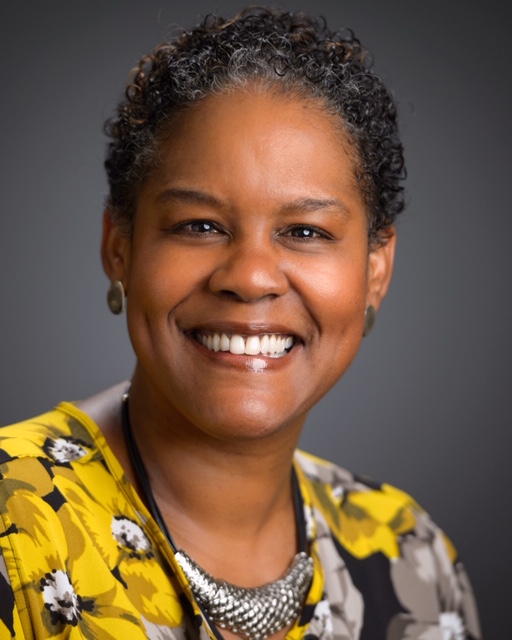
“So I almost failed at this assignment! I missed the deadline for submitting my contribution to the Resilience Resume Project! How’s that for failure? For doers, go-getters, high achievers like us, I have learned that one aspect of failure is learning how to cope with, navigate and negotiate the desire for perfection. For, as Winston Churchill aptly asserted, “perfection is the enemy of progress.” That is where I have experienced my moments of profound failure—failing to make progress on a project, paper, book or new venture because everything was not perfect. Too many times than I care to recall, I have found myself defeated before I even got started, wallowing in frustration and self-pity because I haven’t done what I said I was going to do. Why? Because I wasn’t satisfied with the first sentence, or my initial plans didn’t “wow” me or I gained a pound after starting a new lifestyle change instead of hitting my goal weight overnight. So what did I do? I sat still, which ultimately worked against me because I didn’t move forward. I have finally learned that there is no such thing as perfect. Every draft needs a rewrite. Every blueprint needs revising. Every stumble needs a doover. So this year, I’m going to make progress instead of trying to produce perfection. That. Defeats. Failure."
Dr. Lucky's Resilience Resume Social Media Post
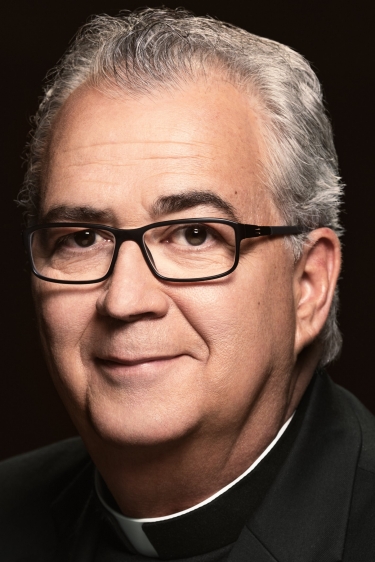
“I attended a small, Catholic high school in Royal Oak, Michigan. There were 84 people in my graduating class and, for the most part, we moved from the elementary school to the high school building next door. My decision to attend Villanova University came as a surprise to many, as Philadelphia was a world away. Less than half of my graduating class planned to attend college, and only two of us were leaving the state. It was a different time, and college was not on the radar for many first-generation students like me. Attending Villanova University was a huge step forward. For the first time ever, I was going to be on my own, away from the comforts of home and the people I had grown up with.
Freshman year is a difficult transition no matter who you are or where you are from. Moving from Detroit to Philadelphia was an adjustment, to say the least. I had to adapt to the East Coast culture and to living in an institutional environment. For the first time in my life, I was uncomfortable.
I assumed classes would be the easy part, as school had always come easy for me. I was an A-B student and honestly, the Bs were few. I never remember getting anything below those grades. I anticipated that college classes would be demanding, as I had heard the stories about professors trying to intimidate freshmen. However, I didn’t think it would be a problem for me – I had a good educational background and was prepared. I soon discovered this was not necessarily the case.
Freshman English had a heavy focus on writing and the first paper I submitted came back with a big red F and an accompanying message: “Where did you go to High School and HOW did you ever get accepted?” I felt like someone punched me in the stomach. I have never received anything below a B, let alone an F. Questions of self-doubt invaded my thoughts. Was coming here a big mistake? Maybe I wasn’t smart enough to fit in at this school. What if I failed again?
However, looking back, I now realize how much I needed that F. It was a wake-up call. I needed to experience the discomfort that came with adjusting to Villanova in order to grow, in order “to become what I was not yet.” That failure taught me to be resilient.
Although challenges and obstacles will come, you can push through and succeed like I did after that initial failing grade. And now look where it has taken me. "
Fr. Peter's Resilience Resume Social Media Post
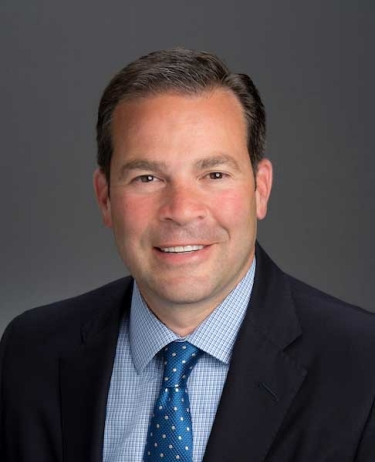
“As the fifth out of six kids and the first to go away to college, I hadn’t done as much career exploration as might be the case nowadays. I set off to college thinking I was going to be a doctor and that was a first inflection point where my intended path didn’t work out for me. Instead, I got into industrial sales.
While I had a good career, it never sparked a passion in me. It wasn’t until I went back to school for my MBA that I started to seriously consider a larger universe of options that might better fit my career aspirations and interests. At that time, I was getting my MBA at Johns Hopkins University and my wife suggested that I avail myself of the programs at the Career Center.
After taking several interest inventories and personality assessments, what kept coming up for me was college professor—a career I never really considered. As I researched it further, I realized that it was something I was very interested in pursuing. I decided at that point to make a complete career shift and entered a PhD program to become a college professor.
The message here is that we’re always exploring what we want to do, no matter our age. It’s never too late to make a change. Villanova’s Career Center is an invaluable resource not only for our students, but also for our alumni through our Experienced Career Services team. I’m a huge believer in the work that the Career Center does and the value it provides. "
Provost Maggitti's Resilience Resume Social Media Post
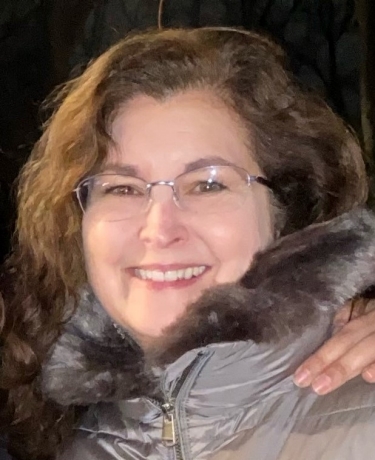
“One day towards the end of September 1995, I walked into one of the many nondescript classrooms in Ernest Cockrell, Jr Hall at The University of Texas of Austin. I was there because I had decided that I wanted to pursue my PhD after working in consulting for two years. I quit my job and my husband and I packed up our belongings and drove them from Pittsburgh to Austin. My husband was working as a management consultant and had found a wonderful job… based out of Philadelphia. He flew out of Austin’s airport every Monday and returned on Friday nights and I would meet him in Philadelphia about once a month. I was taking three graduate classes that met right in a row: Monday, Wednesday, Friday at 8:30 (Consolidation and Settlement), 9:30 (Shear Strength), and 10:30 (Slope Stability). I was taking classes from world-renowned professors. It was exciting, but I felt like I was in over my head. My 9:30 class was with my advisor, Dr. David Daniel. He was a masterful teacher that could make very complex topics understandable. Well, to everyone but me, apparently. On that fateful day I took my seat in the middle of the classroom and he handed back our first exam. A 42. Out of a 100. I was devastated. Suddenly, my mind was racing… “What I am doing here? Do I even belong here? How in the world did I ever think this crazy living arrangement was ever going to work with my husband? I’m making a mess of our life and now I’m failing? Will Dr. Daniel kick me off his research team because I’m so awful? Will my classmates judge me because now I’m a crying girl?” As these thoughts raced through my mind, the tears poured down my face. So now, not only was I failure, I was a crying failure! A crying failure in the middle of the classroom. After class, Dr. Daniel very gently asked me to stop by his office after my next class. I managed to pull myself together and get through my next class. I then popped my head in his office, “Dr. Daniel, you wanted to see me?” I sheepishly asked. He asked me to come in. He was compassionate and kind, so compassionate actually, that I burst into tears, again! After managing to stop the flow of salty water once again down my now blotchy face, we set about making a plan to get me back on track. I can’t say I turned into a Shear Strength expert, but I did manage to earn a B in that class and my PhD three years later."
Dr. Welker's Resilience Resume Social Media Post
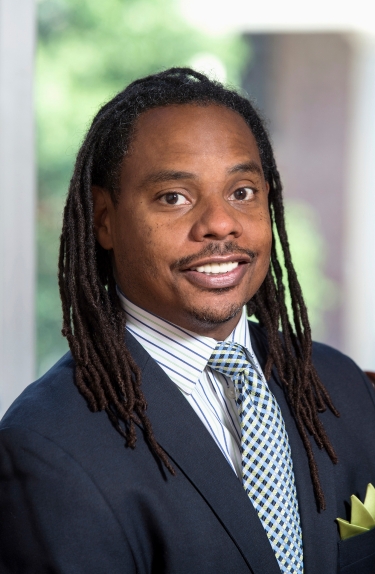
“When I reflect on my undergraduate days, especially my first year in college, I was so excited and optimistic to start. However, the first semester ended quite differently than I had hoped. In high school, I was the type of student who really liked going to classes and did relatively well. But when I got to college, the classes were much different than I had expected, they were more lectures than my high school classes. I had honors most of my high school career and I thought that college would be similar, at least the classwork would be. I did what was asked of me and not much else. I didn’t take notes unless they were written on the board, and I certainly didn’t study because I didn’t really have to in high school and that earn me honors then. Slowly, I began to do poorly on quizzes and exams, and it seemed as if everyone around me knew more about college than did I. It was as if I was a step or two behind my peers; they knew what to study and how to study. After the first semester doing everything that I did in high school to earn honors, I was placed on academic probation in college. I felt like I would never “get it” and that I had made a big mistake going to college.
I was across the state attending college, and I wanted to come back home but I still wanted to be in college. I felt like I was treading water and could barely keep up. During that first semester around finals, I remember trying to study in the library – it had taken me some time to find the right area to study and not just hang out with friends. While I was sitting at the table with my work all over the table, an upperclassman stopped by my table to say hi. His name is Greg Ray and I will never forget our meeting. He talked to me about how I was doing and if I enjoyed being in school. He also said that he would often see me at parties and around campus but then told me that I had to get serious about being in school. It was not high school and that here you have to work hard to succeed, sometimes harder than others around you. He told me that I shouldn’t be discouraged about my first year and that I should take it as a teachable moment – I knew what not to do now and that I had to cut down on the parties and visit the library more and not just during finals. Greg helped me to understand that failing isn’t final unless I made it final. He also helped me to understand that success is often about the amount of effort you put in and less about comparing myself to others.
That next semester, I started to study in a way that worked for me. I am a visual learner – something I discovered after my talk with Greg. I would have to write and rewrite chapters from textbooks which would take hours to do. I did this for each class. I asked questions in class and started to take notes from lectures which was difficult because initially I couldn’t tell what to record and what not to record. But after some time, it became second nature and slowly, my grades improved as did my attitude about school and my place there.
Success can be hard to visualize when it comes slowly or when you doubt yourself. But what I learned is that effort and attitude are vital. I realized that success for me requires a lot of my time and focus and that I cannot compare my path with anyone else’s path. I am happy to say that I was able to earn my undergraduate and two graduate degrees and I owe a lot of that to a chance conversation with someone who cared enough to talk to a frustrated freshman many years ago."
Kevin's Resilience Resume Social Media Post
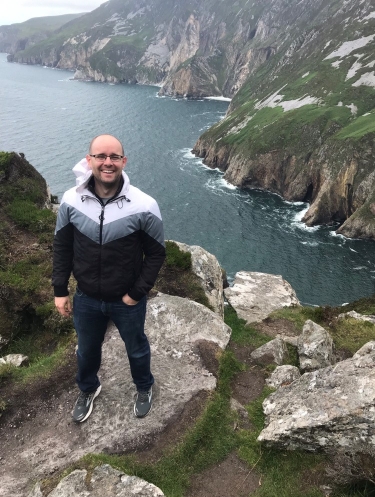
After a few years of working as a career counselor and coach, I applied and got an interview for a leadership opportunity at a very well-known organization. I was so excited about the chance to be in the room with people and talk about how my skills and experiences aligned with what they needed in their next leader.
Despite my effort and preparation, I bombed the interview, and I knew it. I could feel it going badly, and I was losing confidence with every less-than-great response I gave to their questions. My inner critic was having the best day ever. It came as no surprise to me that I got an email a few days later telling me that the organization did not want to have me continue the interview process. Even though I had a strong feeling the rejection email was coming, I was pretty crushed. I was supposed to be the person who knew it all about interviews. I coached other people on it all the time. How could I have failed? I had a lot of questions for myself. I distinctly remember taking myself for a walk to clear my head. The story I told myself was that I would learn from this mistake and do better next time - whenever next time was. If I'm being honest, I only halfway believed myself.
Sure enough, the time to prove myself came again when I applied for and got an interview for the leadership role I am in now at Villanova. I was much more ready this time! Because I tried something like this before, I knew just a little bit more about what to expect. Because I gave less-than-great answers before, I sharpened what could be great answers. Because I knew I could pick myself back up again, I didn't fear failing as much. And here I am now, having succeeded in that interview.
I know now that failing is part of the process of succeeding. I have to stretch myself - thoughtfully - beyond what I am normally capable of to realize what the next frontier is really like. I remind myself that it's okay not to know it all and to be open to learning from what falling short might teach me. The next time might be the right time, and I'll never know unless I keep trying.
Kevin's Resilience Resume Social Media Post
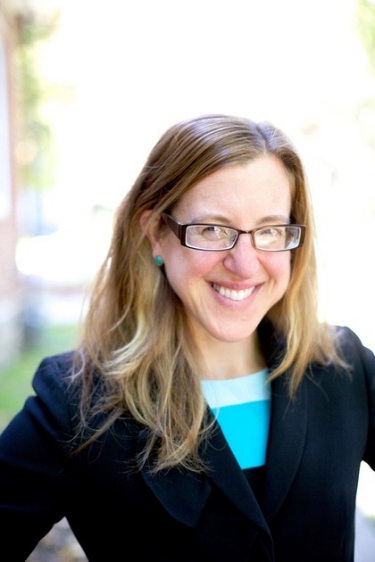
Taking risks in my professional life. The mere act of typing such bold action prompts in my mind a series of seemingly unending questions and slightly irrational "what-if" scenarios. Whether I like it or not, this is my default setting, my natural state, yet I have learned through the years to recognize this embarrassing fact, acknowledge my fears, and tell my inner critic to go bother someone else.
Risk-taking involves bold leaps and entry into the unknown. What immediately creeps into my thinking is the "what could go wrong?" of it all, not the "what could go right?" of it. What if I lose the good things that I already have? What if this is a poor move? What if I regret this step?
What I fail to recognize is all the good that could come. What if this shift allows me to grow and develop new skills? What if this role comes with more opportunities to learn? What if this move allows me to deepen my impact and more meaningfully contribute and help others?
My resistance/aversion to risk has meant that I limit my own growth and development out of fear of the unknown. It's taken me a while to understand this about myself, and thankfully, now that I recognize this more clearly, I can work strategically to combat it. I hear that little voice of doubt and uncertainty and can quiet it. My resilience and confidence have grown as a result.
So do I have any regrets? No, I wouldn't say that I have any regrets. I love where I am. What I do wish I knew "then" that I know "now" is that fear often hampers good decision-making. I understand this now, and I think that this realization allows me to do my job better, with more compassion and empathy for what others might be experiencing as they navigate risk.
Kate's Resilience Resume Social Media Post
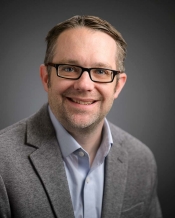
When I was getting out of the Army, I had always dreamed of going to a very specific college. I applied, certain that I was going to get accepted, only to get denied and crushed. I thought college was over for me, and I was very down on myself. I applied to one other school, just because deep down inside, I did not want to be trapped at home, without a college degree, and they decided to take a chance on me. What I learned from this experience is that I may not have gotten my dream school, but I instead got the perfect school for me. In life, you get out of it, what you put in, and that lesson never meant more to me than when I reflect on my transition out of the Army, and into higher education. It is why I am so passionate about working with student veterans and other military-affiliated students today.
Michael's Resilience Resume Social Media Post

Pursuing a career in academia is not for the faint of heart. More often than not, the research that faculty pour our passion and energy into is met with, at best, sweeping suggestions for how it can be improved, but at worst, outright rejection. If reviewers used red ink to leave their comments, our submissions would look like crime scenes. Although I have always been coached not to take these rejections personally, that's incredibly hard to do after spending months, sometimes years, taking an idea from conception to drafted journal submission. Early in my career, I would be left feeling dejected and aimless after receiving a rejection from a journal.
Along the way, a mentor suggested that after I read decision letters I should put them down and do my best to put them out of my mind for a few days. This delay allows me time to divorce my emotional response from my logical one. When I return to the letters, I am more clearly able to digest the insight offered by the critique. In the long run, this invariably leads to an improved manuscript.
Accepting rejection has not gotten any easier over time but now I know that with a little time and space, I can harness the perspective that comes with it to help propel my projects, and more broadly my career.
Aronté's Resilience Resume Social Media Post
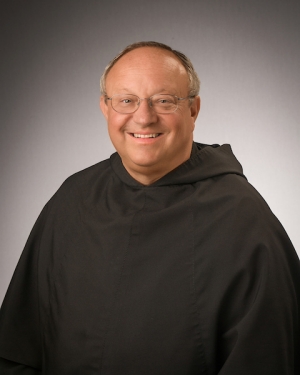
I believe we learn more from losing than winning!
Throughout my life, I have been drawn to leadership positions...a call to serve! Even though I had been elected to leadership positions in scouting, I ran for election as Band President in high school and lost to my best friend from high school. I did agree to serve as secretary and did my best to serve the organization. In my life as an Augustinian, I had been called to serve as a leader in one of our high schools and as a province counselor. But when nominated for Prior Provincial, i.e. the boss, I lost the election. I felt dejected and down. When I announced my loss to the school community, they erupted in applause...because my loss in the election meant I would stay with them as their leader. I never knew losing could be so affirming! I didn't realize what I had right in front of me! I learned to appreciate who I was, and where I was. I did eventually run for Provincial again and was elected to two terms!
No one really remembers that I lost elections, they remember that I won! But, I remember them! And only as I reflect on all the negative thoughts and feelings of losing do I regroup to move on with greater self-awareness.
As I look back at my life, there are certain people who serve as examples to stay in the race even after losses. One such person is Abraham Lincoln, who lost many elections on his way to the presidency! He did his best to learn from his mistakes and failures, reflect on them and remain available to grow and serve. His sense of humility and humble service is always a good reminder to me!
Also, I had hoped to be assigned to Villanova two other times before I was actually allowed to be here. The first time was in 1997 and the second in 2006, but the Provincial would not allow me to take the positions offered then. However, In 2019, I was given the green light to minister here.
Instead of being bitter or resentful of past decisions, I accepted the roles given and did my best! However, I was ready and willing to join the Villanova Community when invited for the third time! Patience, perseverance and joy make the journey worthwhile!
I believe we do indeed learn more from our losses than our victories. My faith, family and friends help me to reflect on both my successes and failures, wins and losses, to recognize the blessings that are present in my life right now, to accept limitations and losses, to be resilient in the midst of trauma, and to rise up time and time again to run the race, fight the good fight and do it with joy! Pope Francis says that joy is the confident assurance of the presence of God!
I used to believe that I had to be perfect in studies and in life but life's losses and failures have shown me that no one is perfect and now I believe that perfectionism is not the goal, in fact, I believe it may be harmful and even sinful. I am human, I have been humbled, and in accepting that, I can and have and will continue to rise up and rise above and do my best to live and love, to serve and smile and to know that I've done my best and that's all God and I can expect from myself!
So in the words of St. Augustine, “Always be dissatisfied with where you are if you are to become what you are not yet. Evaluate yourself constantly, without guile or flattery. Say ‘it is enough’ and you are lost ... Keep on moving forward, walk onward, make progress!”
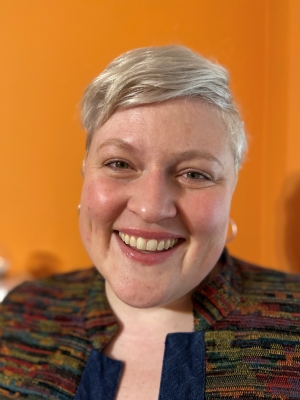
When I first started working in Learning Support Services, I had so many ideas for programs and workshops that I wanted to run. I was just bursting! In my second year, I teamed up with Biology and Nursing colleagues to create an Anatomy and Physiology Study Group. In its early inception, this group met weekly and was a mix of structured review elements, graphic organizers, and exam questions. To run this group effectively, I sat in on A&P classes and spent hours creating materials and running the group, in addition to other elements of my role as a Learning Specialist. Effective? Yes. Efficient? No. It became overwhelming. And although the group was successful and popular, it was ultimately unsustainable in its current format, namely with me at the helm.
I felt like I had failed. I spent so much time and effort on something that I could no longer continue. Upon reflection, the whole experience taught me some lessons that I still think about. First, it is okay to pass along (or pass on) a project. You can say yes to a lot, but you cannot say yes to everything. It can be challenging to say no, especially when the project sounds interesting or you are worried about disappointing someone, but there is also joy in collaborating with and trusting your friends and colleagues. For example, the Study Group lived on for many years under the leadership of our Graduate Assistants and a team of talented students. The second thing I learned was that my time and energy are two of my most precious assets and I don’t think I valued them highly enough. Many years later, I am happy to report that I am still bursting with ideas, but I know that I need to think strategically about what projects I take on so that I can maximize my impact on the Villanova community. Now, as Director of Learning Support Services, I find it very rewarding to support our staff in developing new programming and workshops. I also feel confident in sharing my hard-earned wisdom with both staff and students about making sure we do not overextend ourselves.
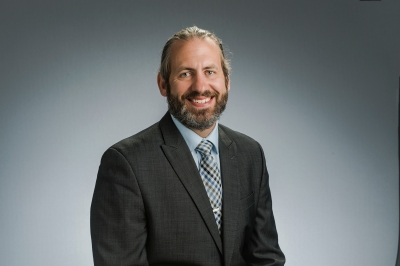
To the extent that my story is about academia and career paths is up for debate, but this is a very personal story which I hope helps you on your path to resiliency.
In 2011, I was in my last year of graduate school at the University of Connecticut (UConn). My wife – Amy – and I were just married in July 2010, and I planned to jump into the academic job market in January 2012 (the annual job market organized mostly by and mostly for economists). It was October and we were pregnant with our first child, and Amy and one of her sisters just had a joint baby shower. As a result, our apartment in Connecticut was full of baby stuff. So. Much. Stuff.
At the same time, Amy’s doctor (Dr. M.) was monitoring a cyst on her right ovary. Dr. M was also Amy’s colleague as they worked at the same small community hospital in Connecticut. On October 21, 2011, which is also one of Amy’s sister’s birthday, Amy experienced some serious pregnancy complications which required an emergency c-section. Of course, this was performed by her friends and colleagues at work, because we had initially drove to meet Dr. M in the obstetrics unit. The baby wasn’t moving, and the medical staff couldn’t find a heartbeat (although they did mistake Amy’s fast heartbeat for the baby’s). The surgery was meant to last 30 minutes and as 90 minutes passed, and I heard multiple cries from newborn babies, I was escorted to a birthing suite in the maternity ward. After a few moments, Dr. M. came in to explain that the baby was stillborn at 33 weeks, and the surgery took longer than expected because he needed to remove Amy’s right ovary and fallopian tube. Apparently, that cyst was angry enough to warrant the oophorectomy and the cyst was sent to the lab for examination. We spent a few days in the hospital with family coming and going, and it was quite terrible for both of us, and especially for Amy.
We now had to plan Mae’s funeral and decided to bury her on top of Amy’s mother, Antoinette, who passed away when Amy was around 18. From among the baby shower gifts, we picked out an outfit and some toys for Mae and placed them in the casket with her. The morning of the funeral (which was in the Wilkes-Barre area of Pennsylvania), about a week after Mae Antoinette passed, Dr. M. called to tell me that the cyst was cancerous, that Amy had a form of ovarian cancer, and that she would need to obtain treatment from a group he recommended in Hartford. I didn’t know what to do with that information, especially given that I was hours away from sobbing my way through my first (and hopefully only) eulogy ever. So, I told my brother the news and, after the funeral, explained to Amy that we needed to go back to Connecticut for her to follow up with Dr. M. Truly, I didn’t know the right thing to do, so I decided that keeping the cancer information private for a few days for Amy to grieve Mae was the best path and ultimately told her the night before her follow-up appointment. She didn’t sleep for one second, and we were staying at a friend’s house due to a huge ice storm that had knocked out power for over a week in parts of New England.
Eventually, we followed up with the gynecologic oncologist who revealed that the cyst was a form of ovarian cancer, and one that likely wouldn’t had been found had this emergency surgery never unfolded as such. Amy didn’t need any serious treatment but would be under surveillance forever, and possibly require a radical hysterectomy after we were done having kids. Wow. Armed with all this information and experience, I went to the job market in Chicago a few months later in January 2012. I had 8 interviews across three days and didn’t secure a single second-round interview. I’m not a traditional economist but also, I was a hot mess. Hiring a hot mess is risky business (but I would have taken a chance on me)! So much of a hot mess that I when I eventually met up with a few folks who were a bit ahead of me at UConn and they asked me how things were going, I broke down and cried on the streets of Chicago. I have no regrets.
It's now 2012 and we are pregnant again. Thankfully, I had finally secured a tenure-track job contract at Indiana University of Pennsylvania (IUP) to begin in Fall 2012. My wife wanted to stick with her current doctors (and who wouldn’t after all they did for us!), so I secured a one-year leave from IUP and started in Fall 2013. In the interim, I worked as a Visiting Assistant Professor at Eastern Connecticut State University. Well, in September 2012, our son Ward was also born about 7 weeks early at an emergency surgery and for similar reasons. Given that my wife is a rockstar, she realized something was wrong in the spirit of what happened with Mae, and we went to Hartford Children’s Hospital and Ward was born. The funny thing is that we didn’t have a name picked out, so Ward’s name was Babyboy Krysiewski for a time, and long enough that the insurance company billed us under this name! At the time, this was all very scary because Ward needed to spend some time in the Neonatal Intensive Care Unit (NICU) to be a “feeder and grower,” but I’ll take this time in the NICU any time over what happened in 2016. All Ward needed was some oxygen for about a day and a platelet transfusion, and 6 weeks later he passed the car seat test to send us on our way home!
Well, it’s 2016 and we are pregnant with our third kid, but Rosie Mae wanted to party much earlier than Mae and Ward. It’s the 24-week mark and the same problem Amy felt with Mae and Ward is happening already. At this point, we are living in Indiana, PA and the local hospital does not have a NICU – the closest one is an hour by car. Amy was being followed by a local doctor until 28 weeks, at which point she was meant to move under the care of doctors at Magee Women’s Hospital. So, a few weeks earlier than expected, we are at Magee trying to get Rosie to behave while at the same time preparing Amy for an emergency c-section due to failing biophysical profile exams and other signs of distress. Thankfully, Rosie behaved but only for about two weeks. At 26 weeks, Amy is back in the hospital but it’s the local one in Indiana. She and the baby are in too much distress to travel, so a NICU team from the Children’s Hospital of Pittsburgh took a helicopter to Indiana (thank goodness for good weather in February!), helped deliver Rosie, and quickly shuffled her 1 pound, 5-ounce body to the NICU at Magee Women’s. Rosie was born in full code and required resuscitation, and when she was brought back to life she was immediately intubated. I saw her for about five minutes before she was flown to Pittsburgh (by the way, flight nurses are amazing!). Once she was there and assessed, the team backdated her age to 24 weeks given her size and severity of prematurity. That is, she was officially born 16 weeks early.
Rosie spent the next 193 days in two NICU’s and one step-down unit. In fact, we all spent 193 days in the hospital, at times sleeping at the Ronald McDonald House with Ward (who was about 4). Rosie had 409 blood draws, 5 surgeries, 7 blood transfusions, 71 x-rays and ultrasounds, 1 EEG, 1 spinal tap, medical necrotizing enterocolitis, and a partridge in a pear tree. After Rosie experienced several failed extubation attempts (7!), we opted for a tracheostomy. Rosie then started to thrive, and we eventually left the step-down unit for our in-home Intensive Care Unit and 24/7 nursing care coverage so Amy and I could continue working. At home nursing coverage is interesting and extremely helpful at times, but it’s also quite weird to have someone in your house all the time.
Years of daily trach-tie changes and bi-weekly trach changes, emergency (roadside) trach changes (yes, one at a bar in the middle of nowhere), and just generally being tied to the broader medical community pass, and Rosie is finally decannulated through an airway reconstruction in 2019. During the same time, my wife switched from working in public relations and communications at hospitals and a bank for over a decade to work full-time as a baker for a locally owned coffee shop in the greater Pittsburgh area. I received tenure at IUP in 2018. After another 30-day stay in the hospital in July/August 2019, we were excited to get Rosie through the 2019 flu season and out into the world in 2020. Well, we know what happened in 2020 and it was quite possibly the worst circumstance for someone like Rosie. A global, respiratory pandemic for a prematurely born kid with a rebuilt trachea and mild chronic lung disease. We were back on lock down, and it was not great.
In Fall 2020, IUP, after having an enrollment of around 15,000 students in 2013 had about 9,000, and the pandemic sped up a reorganization process the state system was planning. Approximately 120 tenured, tenure-track, and other faculty were issued retrenchment letters based on the covenants of the collective bargaining agreement. Being one of three newest hires in my department and, by way of a random lottery, a colleague and I were issued letters of retrenchment noting that we would no longer be employed by IUP after May 2021. Full departments were cut and folks who had been full professors for years were let go. I always think that if life didn’t happen the way it did and that I had started in Fall 2012, that I would still be working at IUP.
Nonetheless, I had been looking for a new job. One where we were close to family in Eastern Pennsylvania and Long Island, and one with a lighter teaching load. My teaching load at IUP was a 4-4, and I would typically have about 150 students per semester across 2-3 different course preparations. It was a difficult environment to perform service and research, but I did my best. At the same time, I couldn’t simply do a geographically focused search because I wasn’t going to have a job come May 2021. I broadly applied, finding myself having to explain why I would (as a tenured Associate Professor) be willing to take a job as an Assistant Professor, a Visiting Professor, or a non-tenure track professor. I must have sent out over 100 applications, until finding the posting for a CNT at Villanova in the Economics Department. I figured, why not? The cynic in me thought I had no chance at the job. Why would they consider someone like me under my circumstances? I had also just spent a considerably long-time teaching from my basement via zoom while fighting the background noise of my son taking his second-grade classes (also from the basement) and my daughter stomping around upstairs. Anyway, I applied, interviewed via Zoom and sent over a teaching demonstration (which was essentially me in a dank basement talking to students via Zoom while using my whiteboard and fighting the sounds of my son in virtual school). Like I said, no shot!
But, of course, I did get that job and it was delightfully exciting! I applied at the Assistant level (per the job opening) but was offered a position at the Associate level and with a reduced teaching load for my continued research contributions. I was so excited, and so was my family. We would be closer to our extended family and Villanova is such a huge step up in many ways. This was Spring 2021, and we sold our house in Indiana, PA, rented a tiny condo for a few months, and begin looking for housing north of Philadelphia. Many visits and tours later, we overpaid for a house in Mont Clare, Pennsylvania. But a funny thing happened next. On the last day of finals week at IUP in Spring 2021, I received a letter from the President’s office noting that my retrenchment letter was rescinded, and I could have my job back (as it was, tenured and all). Wow, two job offers in one season – I was moving up in the world! Of course, I did not (nor could I) accept such an offer, but it was just a bit of icing on the “life happens” cake.
Other things happened along the way which could have easily thrown me off my game as a student, father, husband, and human. My estranged father died of opioid-addiction related ailments. Amy and I had a Great Dane we had to put into an animal sanctuary due to his repeated successful and unsuccessful attempts at biting Amy while she was pregnant with Mae. Amy developed an autoimmune disease which she manages to this day. I had a serious back injury which required surgery and perpetual pain management. Ward is crushing life with a profound understanding of things a kid his age wouldn’t necessarily experience. Rosie has some intellectual disabilities and is just beginning special education kindergarten. Amy found a new job fundraising for a local organization which attempts to secure housing and job opportunities for adults with special needs, all through private donations. I’m loving work at Villanova, trying my best to implement sustainability initiatives all over the community. The point is, that life happens, and I do my best to take life day-by-day but sometimes it must be second-by-second. Resiliency and flexibility go together, and I’d love to be a resource or a listening ear – so feel free to drop me a line whenever you feel like it!
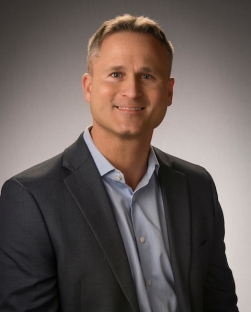
“I have developed an “adapt with a smile” approach to life, this approach fuels my positive attitude and is central to my role as a professional, husband and father.
Working in higher education for close to 20 years, and in non-profit for three years, I have received many blessings, conquered quite a few challenges, braved through some anticipated and unanticipated life changes, and witnessed countless amazing feats from others.
While in high school, my dream was to play college basketball, and although I was not recruited by any colleges, I was presented with an opportunity to compete at a small division three school. Shortly after the very first team practice, I endured a back injury that required invasive surgery, and my playing days were over. I went on to explore new things, take on new hobbies, and expand on my relationships. That account taught me to always be optimistic as I realized that my path was simply redirected, I experienced the beauty in other things, and I am truly grateful for that.
Twelve years into my job in higher education, I experienced yet another back injury, requiring another surgery. I went on disability and did not return to that job, as I chose to reinvent myself. I worked for a non-profit (and loved it) and that path ultimately led me to my dream job at Villanova.
My biggest test of resilience occurred when I lost my first wife to cancer. This incredibly devastating loss changed me completely. I now live every day with a sense of vigor and deep appreciation, and always with an open heart.
I am positive not because I believe life is easy, quite the contrary, I am positive because life is hard, and I know we all have the power to charge on, take forward steps, “redirect” and lean on one another in the spirit of love.”
Steve’s Resilience Resume Social Media Post
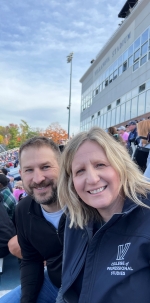
"In my early days as a faculty member, I was working on an article for many years, and every time I submitted it to a journal it was rejected. It happened upwards of 5 times -- and was quite disheartening, especially since many of my colleagues who read it really loved it and thought it would make a significant impact on the literature. With every rejection, I felt increasingly dejected, wondering if I had chosen the wrong profession. One of the reviewers even wrote that I should "open my desk drawer, put the article in, and never open it again."
I remember feeling so down and upset -- but I did not give up, thanks to the exceptional encouragement of my friends and mentors. It was eventually published -- and in a journal that was a perfect fit.
The lesson - don't give up, listen to those around you who know you and believe in you, and don't let meanness or unprofessional comments get you down! Believe in yourself and your abilities!"

